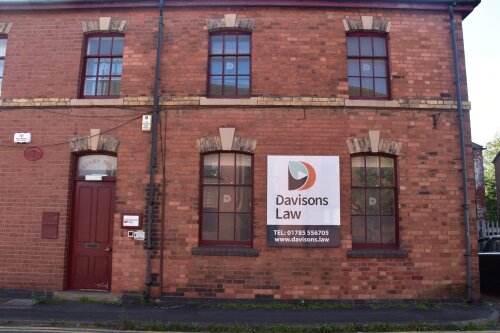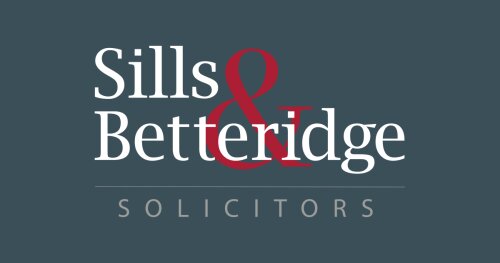Best Whistleblower & Qui Tam Lawyers in United Kingdom
Share your needs with us, get contacted by law firms.
Free. Takes 2 min.
Or refine your search by selecting a city:
List of the best lawyers in United Kingdom
About Whistleblower & Qui Tam Law in United Kingdom
Whistleblower laws in the United Kingdom aim to protect individuals who report misconduct, fraud, or illegal activities within an organization. Known colloquially as "whistleblower" protections, these laws ensure that individuals can come forward without fear of retaliation. The Public Interest Disclosure Act 1998 (PIDA) is the primary legislation, providing protections for workers who disclose information of wrongdoing within their workplace. While the "qui tam" concept is not directly utilized in the UK as it is in the United States, similar provisions exist that encourage transparency and accountability, especially in contexts like corporate fraud.
Why You May Need a Lawyer
There are several situations where seeking legal advice in matters of whistleblower and qui tam activities may be necessary:
- You suspect illegal practices in your workplace and wish to report them but are unsure of the legal protections available to you.
- Your employer has retaliated against you following your whistleblowing activities, and you are facing negative consequences such as dismissal or demotion.
- You have seen violations of Public Interest Disclosure Act safeguards and need assistance in taking the matter further.
- You have been made aware of fraud against the government and wish to understand potential avenues for reporting and protecting yourself.
A lawyer specialized in this field can provide vital guidance on how to proceed, what evidence you will need, and how to protect your rights throughout the process.
Local Laws Overview
The United Kingdom's principal legislation concerning whistleblowing is the Public Interest Disclosure Act 1998. The Act affords protection to employees in both public and private sectors, provided they report specific categories of wrongdoing, such as criminal offenses, health and safety threats, environmental damage, or miscarriages of justice.
This protection is contingent on the whistleblower acting in good faith and the disclosure being made to the appropriate authority. The law considers the potential harm of the disclosure to the employer versus the public interest in disclosing such information.
In addition to PIDA, other regulatory bodies such as the Financial Conduct Authority (FCA) and the Prudential Regulation Authority (PRA) have roles in protecting whistleblowers within specific industries.
Frequently Asked Questions
What is considered a protected disclosure?
A protected disclosure involves providing information about suspected wrongdoing that falls within categories such as criminal acts, environmental damage, or violation of legal obligations. It must relate to events that have occurred, are occurring, or likely will occur.
Can I be fired for being a whistleblower?
No, the law protects whistleblowers from being fired or subjected to any detrimental treatment. Dismissal due to whistleblowing is deemed automatically unfair and can lead to legal recourse.
How do I prove retaliation for whistleblowing?
Evidence of retaliation may include emails, performance reviews, witness statements, or a timeline of events showing adverse actions following your disclosure. Legal counsel can guide you on building a strong case.
What if my disclosure is not protected under PIDA?
Disclosures that do not qualify under PIDA may not receive statutory protection, and special care should be taken to assess the risks involved. Legal advice is often recommended in such situations.
Who can I report to for protection under PIDA?
Depending on the context, disclosures should generally be made to prescribed persons or bodies related to the sector or wrongdoing in question, such as regulatory authorities.
Do whistleblower protections apply to contractors or volunteers?
Whistleblower protections mainly apply to employees; however, some provisions may extend to certain contractors or volunteers, and this can vary depending on the details of the case.
What if the issue involves national security?
Special rules and channels exist for national security disclosures, and these come with additional constraints. Legal guidance is crucial in such sensitive cases.
Are there time limits for making a claim under whistleblowing protection laws?
Yes, claims generally need to be made within three months of the detrimental act or dismissal that resulted from the whistleblowing activity.
Can I remain anonymous when I whistleblow?
While anonymity can be requested, it's not always guaranteed depending on the specifics of the investigation and the necessity for evidence from witnesses.
What remedies are available if a whistleblower has been unfairly treated?
Available remedies can include financial compensation, reinstatement, or prevention of further detrimental treatment, subject to tribunal determination.
Additional Resources
- The UK government's official page on whistleblowing and how it works
- The Advisory, Conciliation and Arbitration Service (ACAS) for dispute resolutions
- The Whistleblowing Helpline for advice in the healthcare sector
- Public Concern at Work, which offers legal advice and support to whistleblowers
Next Steps
If you need legal assistance in Whistleblower & Qui Tam matters, consider taking the following steps:
- Gather all relevant information and documentation related to your case.
- Consult with a legal professional specialized in whistleblower law to discuss your options and understand your rights.
- Make a note of any deadlines or critical actions required to protect your position.
- Consider reaching out to organizations that specialize in whistleblower rights for additional support and guidance.
Acting swiftly while ensuring that you are informed about your rights and obligations can make a significant difference if you find yourself in a whistleblowing scenario.
Lawzana helps you find the best lawyers and law firms in United Kingdom through a curated and pre-screened list of qualified legal professionals. Our platform offers rankings and detailed profiles of attorneys and law firms, allowing you to compare based on practice areas, including Whistleblower & Qui Tam, experience, and client feedback.
Each profile includes a description of the firm's areas of practice, client reviews, team members and partners, year of establishment, spoken languages, office locations, contact information, social media presence, and any published articles or resources. Most firms on our platform speak English and are experienced in both local and international legal matters.
Get a quote from top-rated law firms in United Kingdom — quickly, securely, and without unnecessary hassle.
Disclaimer:
The information provided on this page is for general informational purposes only and does not constitute legal advice. While we strive to ensure the accuracy and relevance of the content, legal information may change over time, and interpretations of the law can vary. You should always consult with a qualified legal professional for advice specific to your situation.
We disclaim all liability for actions taken or not taken based on the content of this page. If you believe any information is incorrect or outdated, please contact us, and we will review and update it where appropriate.
Browse whistleblower & qui tam law firms by city in United Kingdom
Refine your search by selecting a city.















